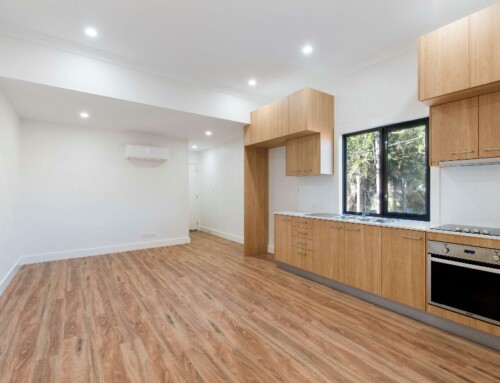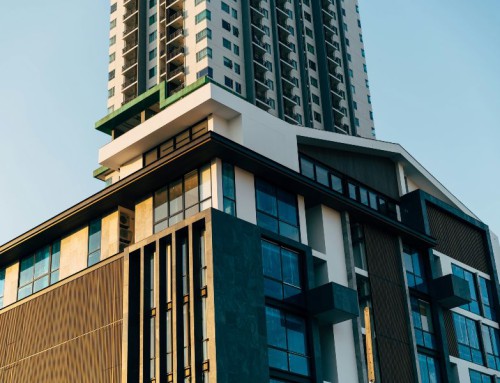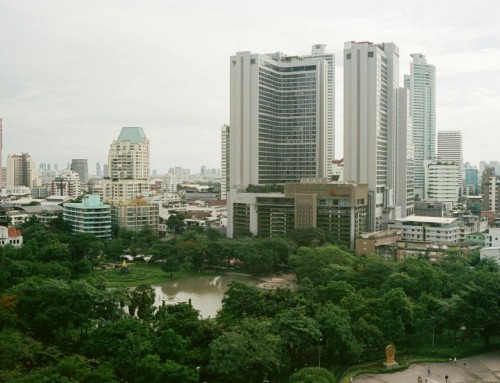Much has been made about the impending oversupply in the local property market. Supply has seemingly outstripped demand and now investors are trying their best to find tenants or buyers in a limited pool of prospective takers. Buyers are gleefully waiting along the sidelines as prices soften, often cheering when another quarter of price decline is reported. On top of that, the US Federal Reserve has raised interest rates for the first time in almost a decade and that has caused an increase in mortgage rates. Doomsday scenario on the way for the property market? I believe that as a small and very open economy, we need to take a more holistic view before making bold predictions with regards to where property prices are headed.
1. Singapore is a very open economy
Singapore is essentially a price taker when it comes to setting interest rates. The Monetary Authority of Singapore (MAS) has a mandate to control inflation by controlling the exchange rate of the Singapore dollar versus a basket of currencies. The conventional method would be to manipulate the interest rate rather than the exchange rate. If inflation was high, the central bank could raise rates to cool borrowing and consumption and vice versa. Instead MAS uses our reserve to prop up the Singapore dollar to ensure that the goods we import remain affordable and thus limiting imported inflation. One reason why Singapore has to do this is because we import most of our consumption goods. The US uses interest rates to control the consumption pattern in their economy and since the financial crisis in 2008, the US economy was weak and the US Federal Reserve kept borrowing rates close to zero to spur consumption and hopefully stimulate the US economy. Banks in Singapore had to base their interest rate on what the US was offering. If our rates were kept too much higher as compared to what the US was offering then there would be a huge capital inflow of foreign funds into Singapore as people looked to seek for higher returns on their cash. This would cause inflation problems among a host of other issues.
However what followed was not exactly the best thing that could have happened either. Due to the availability of cheap money, Singapore’s property prices went on an unbelievable run upwards as buyers thronged show flats and went on a buying spree. Mortgage rates were at historic lows of about one percent and this made affording a property extremely cheap. As for developers, they too went ballistic as the availability of cheap money meant huge expansion plans and aggressive bids on plots of land to build swanky new developments. In some instances, property prices have doubled since 2008. The government could only control the property market by increasing the taxes that were levied upon property transactions which it did and subsequently the market cooled.
Thus if the events of 2008 till today were created not by factors that were in Singapore alone, then why is it that when property analysts predict where property prices are heading they tend to have a narrow view and only comment on factors like local supply and demand and local interest rates?
2. The China and India factor
We really do treat economics as a social science and like all sciences, we do try to use the past to predict what will happen in the future. However in the history of mankind, or at least since we started recording economic data, there has never been an instance whereby 1.4 billion people get richer with every passing day. On top of that, India is emerging as well. In all down cycles there tends to be a certain withdrawal of interest from a certain group of people, in 1997 it was the loss of interest from people from Hong Kong, that caused a sharp fall in property demand and subsequently prices. This time round, the Chinese from mainland China will be one of the determining factor as to where property prices are heading. Just to put into perspective the size of the Chinese economy as compared to Singapore’s, China’s GDP is approximately USD$9.24 trillion dollars whereas Singapore’s is at USD$297.9 billion dollars. Singapore does not set any restrictions on foreign ownership of condominiums. As the Chinese Remminbi depreciates, the Chinese will look for an avenue to park their money and purchasing Singapore property is a viable option. The strength of the Singapore dollar favours those who hold Singapore dollar denominated assets and many foreign investors do understand this particular point. Which is why many wealthy Indonesians choose to park their monies in assets in Singapore.
3. There are growth sectors in the Singapore (and global) economy
Namely the information technology (IT) sector and engineering. There is a paradigm shift in sectors of the economy. Singapore is a financial hub and will continue to be one of the largest financial hubs in Asia. However, our Singapore government does recognise the need to build up our IT and engineering industries. Despite the retrenchments and layoffs that are happening in the banking and petrochemical industries, we can now no longer take that as an extremely accurate barometer of where the Singapore economy as well as property prices are headed. IT is changing the world and some jobs are lost due to structural changes as to how traditional businesses are run. For example, the bank does not require as many counter tellers as before as more banking customers do their banking online. Once lost, these jobs do not come back. Instead, new industries are formed and eventually these new industries may become major drivers of the economy. Simply put, the IT and engineering industry is expanding. Who is hiring? Heard of Google?
4. There is a new normal when it comes to cost of funds
Despite what a lot of people are saying when it comes to interest rates, the fact of the matter is that the global economy is too weak for rates to go up too high in a short period of time. Since 2009, rates have been close to zero and despite what the US Federal Reserve has been saying about wanting to normalise rates, I personally see them raising rates just so that it gives them some room to maneuver in case there comes another recession. Cost of borrowing will remain low for a few more years at the current levels. Currently mortgage rates are hovering around 2% and this makes investing in Singapore property still rather attractive. In short, Singapore is a price taker when it comes to setting interest rates and the global economy is still rather weak for countries around the world to be raising interest rates.
5. Singapore is still one of the best places to live
This is a very strong determining factor in predicting how far prices will soften. As can be seen from the last two years of price declines, prices have softened but have yet to formally crash. Essentially property prices will hold firm as people find value in security and serenity that comes with living in Singapore.
My personal take to prospective buyers out there is to seriously consider making a purchase in the next two years. It is an extremely good time to be a buyer in the property market. This scenario will not last forever.
Yours Sincerely,
Daryl Lum
www.daryllum.com






